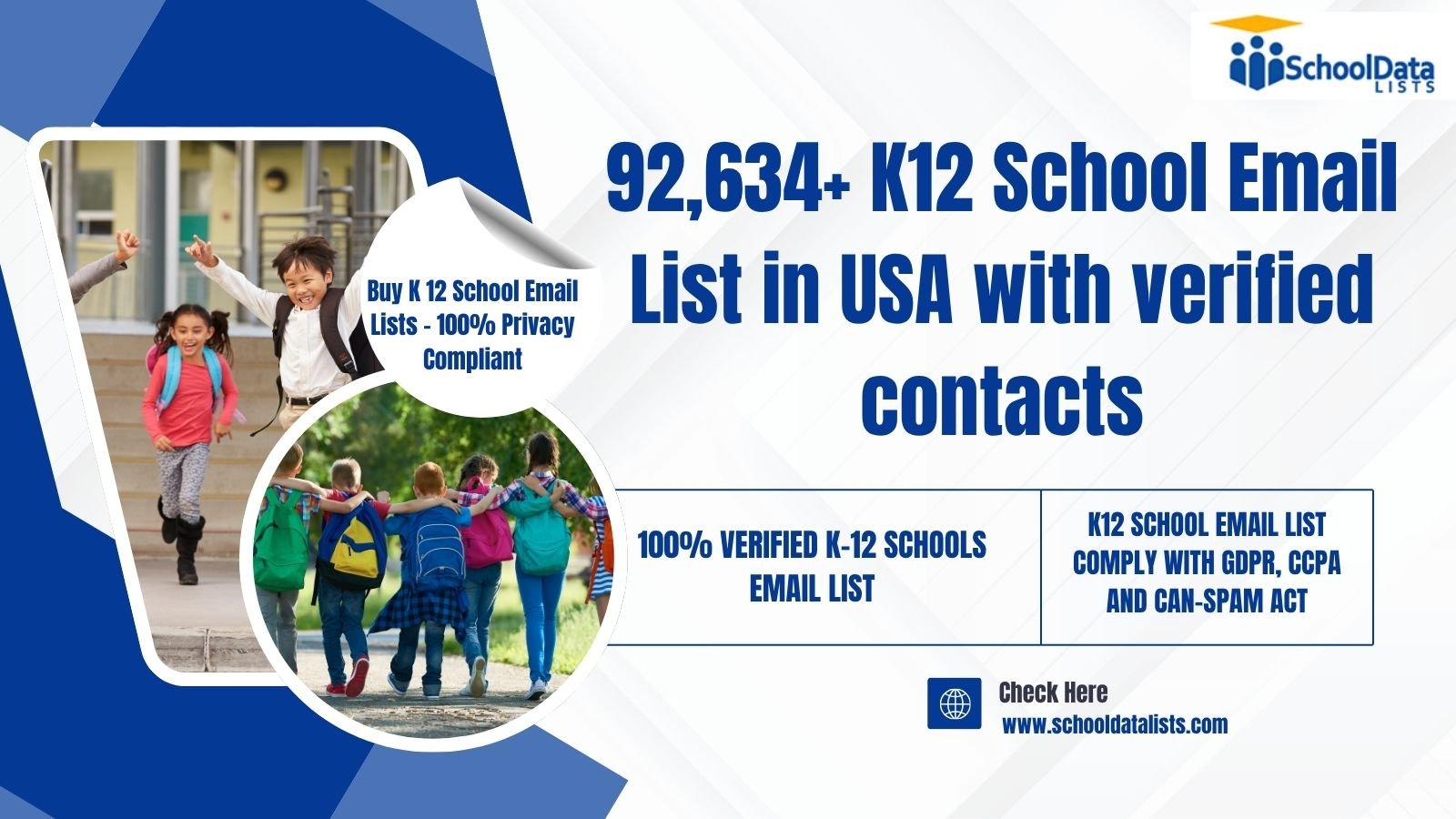Inside the Work of an Education Marketing Agency
In today’s rapidly evolving education landscape, institutions face fierce competition when attracting students, preserving brand reputation, and delivering digital experiences that match modern expectations. This shift has created a growing demand for specialised support—leading to the rise of the Education Marketing Agency, a partner dedicated to helping schools, colleges, universities, and edtech brands thrive in the digital-first world.
This blog takes you inside the operations of an education-focused agency like Adomantra, explaining how strategic planning, creativity, and data-driven decision-making come together to build strong educational brands.
Why Education Marketing Requires a Specialised Approach
Marketing in the education sector is unlike any other industry. It involves understanding student behaviour, parental decision-making, admission cycles, academic credibility, and long-term institutional values. Unlike commercial brands, education decisions are emotional, aspirational, and influenced by trust.
A dedicated Education Marketing Agency understands the complexity of:
- Admission season timelines
- Decision factors for students and parents
- Geographic targeting for domestic and international students
- Competition among similar institutions
- The importance of academic reputation and rankings
- Sensitive communication tone
Instead of generic marketing, institutions need a partner that understands these nuances and builds campaigns aligned with educational ethics and long-term vision.
How an Education Marketing Agency Works
1. In-Depth Brand and Audience Research
Every successful education campaign begins with research. Agencies assess:
- Institution values
- Target audience (students, parents, working professionals)
- Competitor positioning
- Course demand trends
- Historical admission data
- Online presence and brand perception
This research helps shape a marketing strategy that resonates with the right audience.
2. Strategic Digital Planning
Once insights are collected, the agency develops a digital strategy across multiple channels. This includes:
- Brand positioning
- Key messaging
- Content strategy
- Digital funnel planning
- Lead generation roadmap
- Media buying and campaign forecasting
For education brands, the goal is not just traffic—it is quality student leads and meaningful enquiries.
3. Creative Branding and Storytelling
Education is an emotional space. Students aspire for growth, parents seek security, and working professionals seek advancement.
An agency like Adomantra develops branding and communication that:
- Builds trust
- Highlights faculty expertise
- Showcases campus life
- Demonstrates outcomes (placements, alumni success)
- Strengthens institution reputation
This involves creative work such as brochures, videos, campus films, program explainers, social media creatives, and landing pages.
4. Search Engine Optimization (SEO)
SEO is a core function in the education marketing ecosystem. Parents and students search for:
- Best colleges
- Top courses
- Admissions
- Scholarship details
- Coaching or exam prep
A dedicated team optimizes website structure, on-page content, backlinks, and local visibility. This ensures the institution appears prominently on key search terms to generate long-term organic enquiries.
5. Social Media Management
Education brands must connect with students where they spend time—on social platforms.
Agencies manage:
- Instagram content and reels
- Student success stories
- Faculty highlights
- Event coverage
- Campus culture posts
- Paid ads for admissions
Social media helps build community, trust, and brand familiarity.
6. Paid Advertising and Lead Generation
To support admission goals, advertising across platforms like Google Ads, Meta Ads, LinkedIn, and YouTube is vital.
An Education Marketing Agency handles:
- Campaign setup
- Keyword targeting
- Audience segmentation
- A/B testing
- Conversion tracking
- Landing page optimization
- Lead nurturing
Unlike generic marketing, education campaigns require tight control over cost per lead, academic season timing, and nurturing through CRM systems.
7. Website and Landing Page Development
A user-friendly, conversion-optimized website is essential for every education brand. Agencies ensure:
- Fast loading speed
- Mobile-friendly layout
- Program information clarity
- Clear CTAs for admissions
- Integrated inquiry and chatbot systems
Since the website is often the first impression parents and students get, agencies ensure it reflects trust and authenticity.
8. Video Production and Virtual Tours
Video is the most powerful medium for showcasing campus life, student culture, faculty expertise, and institutional credibility.
Agencies produce:
- Campus walk-throughs
- Testimonial videos
- Program introduction videos
- Placement highlight videos
- Scholarship explanation videos
This is especially important for international students who cannot visit the campus in person.
9. Reputation and Review Management
Student and parent reviews significantly influence decision-making. Agencies manage:
- Google reviews
- Social media feedback
- Community discussions
- Complaint resolution
- Online reputation monitoring
A strong online reputation builds trust and improves student conversion rates.
10. CRM Integration and Lead Nurturing
Enquiry-to-admission conversion is the biggest challenge institutions face. An education-focused agency sets up:
- Lead scoring
- Automated email and SMS sequences
- Personalized follow-up journeys
- Drip marketing campaigns
- Admission counselling support
This ensures no potential student is lost due to poor follow-ups.
What Makes Adomantra Different as an Education Marketing Agency?
Adomantra blends research, creativity, data, and experience to support institutions across India and internationally. The agency’s educational expertise ensures:
- Tailored campaign strategies
- Transparent performance reports
- Quality student lead generation
- Multi-channel digital growth
- Ethical communication and compliance
- Strengthened institutional credibility
Adomantra’s team handles everything—from branding to admissions—to help educational institutions scale sustainably.
Benefits of Working with a Specialized Education Marketing Partner
Partnering with an expert agency ensures:
- Better student acquisition
- Stronger online authority
- Higher visibility in competitive markets
- More efficient advertising budgets
- Consistent branding across channels
- Access to specialists in every digital domain
Instead of juggling multiple vendors, institutions get a single, reliable digital partner.
Conclusion
The work of an Education Marketing Agency goes far beyond typical digital marketing. It involves strategic understanding of student psychology, admission timelines, academic positioning, and long-term brand building. Agencies like Adomantra serve as essential growth partners for institutions that want to stay competitive, attract high-quality students, and build a strong brand presence.
As education continues to transform, the role of a specialised marketing agency will only become more crucial.
- YouTube Ads
- LinkedIn (for higher education and working professionals)
- Education directories and listing platforms
Each platform plays a different role in discovery, engagement, and conversions.
12. How does a marketing agency track student enquiries?
Agencies use CRM tools to track enquiries from the moment they arrive. They track:
- Lead source
- Student profile
- Engagement level
- Follow-up activity
- Admission status
This ensures no enquiry is missed and follow-ups remain consistent.
13. How important is video marketing for educational institutions?
Video marketing is extremely important. Students prefer watching campus videos, faculty introductions, and program explainers. Videos build trust, provide virtual campus experiences, and drive higher engagement than static content.
14. Can agencies create campus virtual tours?
Yes. Many education agencies produce high-quality virtual campus tours, drone videos, classroom walk-throughs, lab showcases, and hostel previews to attract students who cannot visit physically.
15. What is lead nurturing in education marketing?
Lead nurturing refers to the process of sending personalised emails, messages, reminders, and updates to prospective students after they enquire. It guides them through application steps, deadlines, and program benefits until they make a final decision.
16. How do agencies ensure ethical marketing in education?
Professional education agencies follow strict guidelines:
- No false claims
- Real student success stories only
- Accuracy in course details
- Transparent communication
- Compliance with academic advertising norms
This protects the institution’s reputation and builds trust.
17. What type of content works best for education brands?
Effective content includes blogs, program explainers, alumni success stories, scholarship pages, FAQs, career guides, reels, webinars, and newsletters. Content must be informative, credible, and aligned with the institution’s tone.
18. Do agencies manage admission campaigns for multiple programs?
Yes. Agencies tailor separate campaigns for each program—engineering, management, medical, arts, online courses, certifications, and more. Each program needs different keywords, audience segments, and ad creatives.
19. How do agencies help institutions during peak admission seasons?
They increase ad budgets, optimise campaigns for maximum reach, produce rapid content updates, strengthen communication frequency, and ensure counsellors get real-time lead notifications. This helps institutions achieve admission targets.
20. Can education marketing help small institutions compete with bigger universities?
Absolutely. With the right digital strategy, even small or new institutions can build strong visibility, generate a steady lead flow, and highlight their unique strengths. Digital marketing levels the playing field.
21. Is website optimisation necessary for student admissions?
Yes. A slow or confusing website can cause students to drop off. An optimised site improves user experience, reduces bounce rate, and increases enquiry conversions through fast loading, clear CTAs, and informative content.
22. How do agencies measure campaign success?
Success is measured through:
- Number of enquiries generated
- Cost per lead
- Lead-to-admission ratio
- Website traffic
- Search rankings
- Engagement metrics on social media
These metrics help institutions evaluate ROI.
23. Can an Education Marketing Agency help with rebranding?
Yes. Agencies assist with logo refresh, brand positioning, updated messaging, campus photography, brochures, website redesigns, and new storytelling approaches that match modern student expectations.
24. How often should educational institutions run digital campaigns?
Consistent year-round marketing is ideal, but campaigns typically peak during admission seasons. For long-term brand building, institutions should maintain an always-on presence across search, social, and content.
25. How can institutions choose the right Education Marketing Agency?
When selecting an agency, institutions should evaluate:
- Education sector experience
- Proven case studies
- Team capabilities
- Transparency in reporting
- Understanding of admission cycles
- Ethical marketing practices
- CRM and automation expertise
Choosing the right partner ensures sustainable growth and stronger admissions.
Read More: techners












Leave a Reply